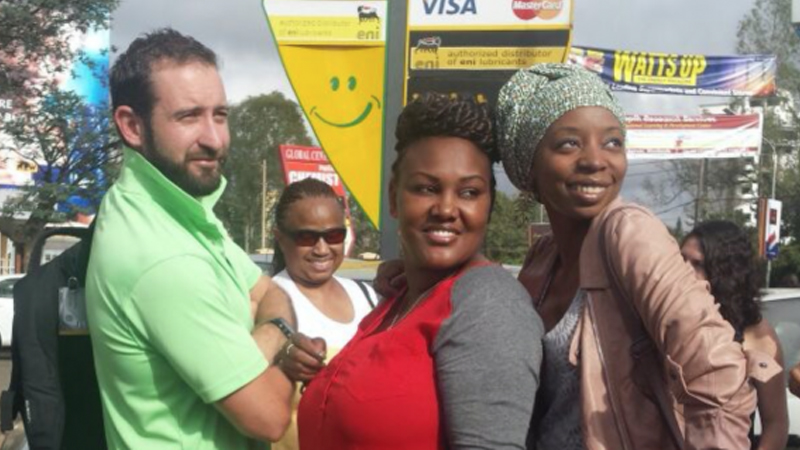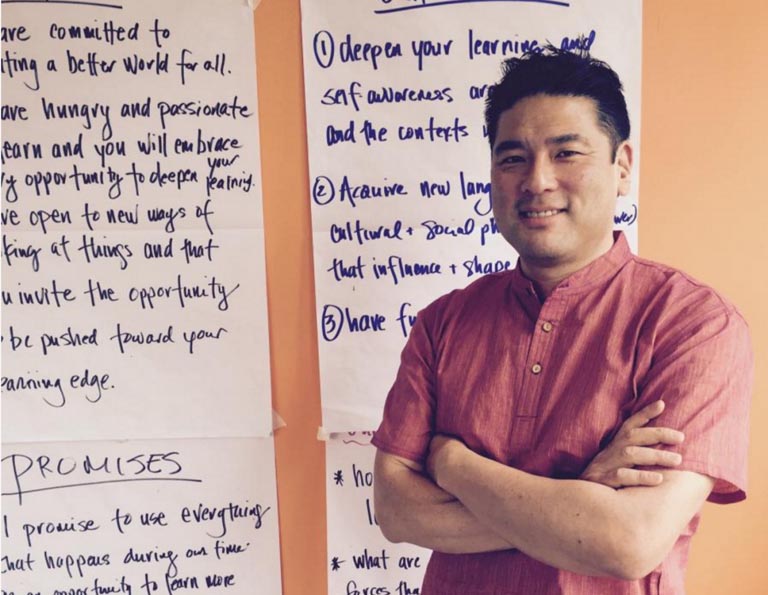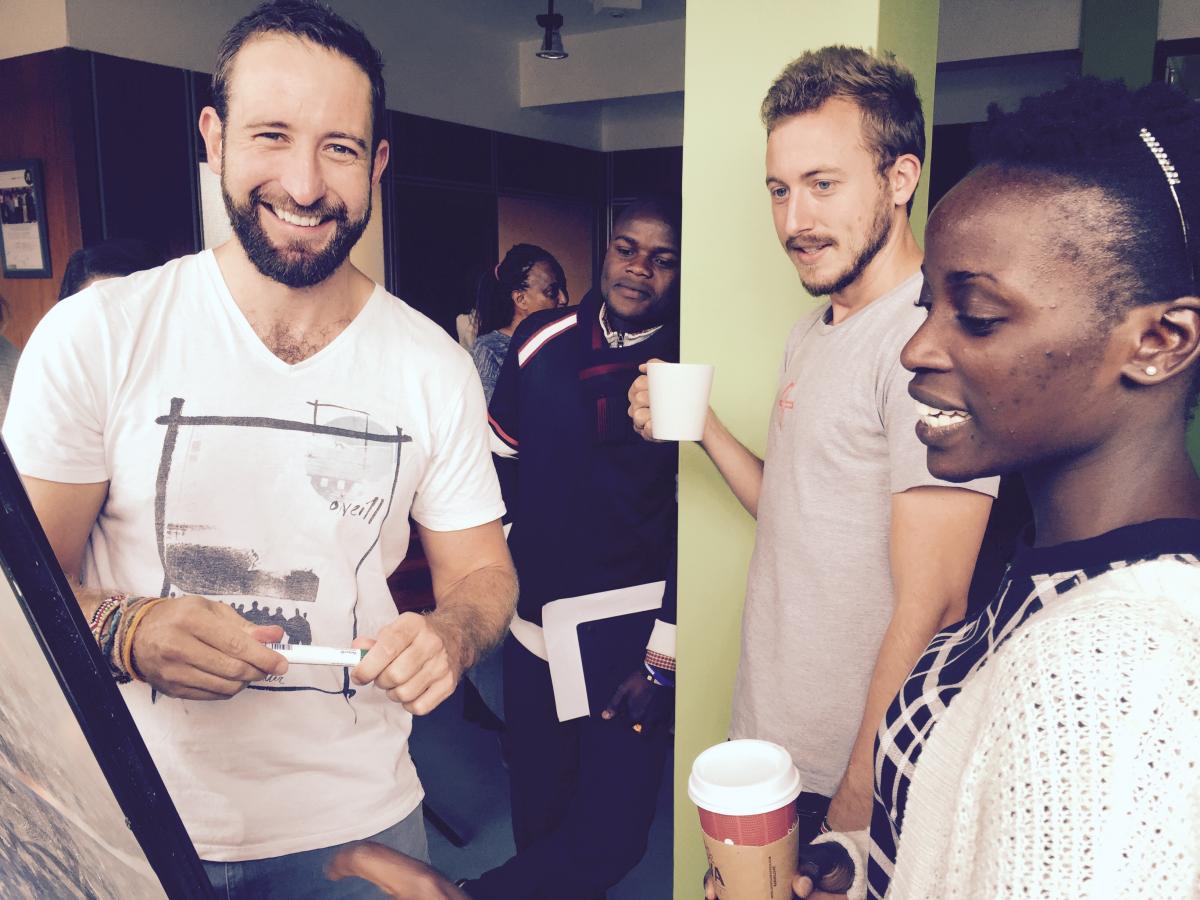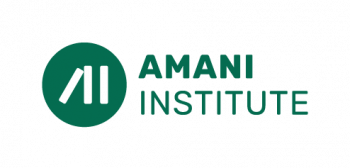Which skills and practices can help social change professionals take leadership in difficult situations?
Working towards social change usually is not easy. In the words of Amani Institute co-founder Roshan Paul, the world enthusiastically rejects our attempts to change it. So by the very nature of this work – no matter whether within a global company in CSR, as an activist, a social entrepreneur or NGO professional – it asks us to operate in ambiguous environments and without knowing all the answers.
_____________________________________________________________________________________________________________
We asked Britt Yamamoto, founder of iLEAP and instructor at Amani Institute, what he has to say about the topic and what you can do today to improve your leadership skills.

1. Why is it important to build leadership skills for uncertain times when you want to work in social change?
I have a confession to make – it’ s a bit deceptive to say ‘in uncertain times’ – there are really only uncertain times. Everything is uncertain, and as change leaders we mostly operate in ambigiuous situations in which we usually never have all the answers. Learning is one strategy to try and mitigate that uncertainty but you will never know fully. So – working towards stability is an illusion, especially in the social sector. So – the first thing I would advise changemakers on is to be aware that that’s the prevailing norm. We always are in states of ambiguity and uncertainty and learning how to create change in this context is crucial for you as a leader no matter your position at work.
2. What would you advise someone who is looking to increase their leadership skills?
The most important question is: Can you become comfortable with taking action despite the fact that you don’t have all the answers?
You can train the ability to take action and make decisions in ambigiuous situations – it’s like an inner muscle. The first step to developing that is to work on your self-awareness. You need to know what you are capable of and what you need support with. Another important step is to start asking for help while still being confident, trusting yourself.
Then you have to take action and test yourself. See how it works. You often see in retrospect what questions you should have asked. Or, you realize you know more than you think. The point is to reflect appropriately – otherwise you will not learn the right lessons. If you notice that you are reactive and impulsive, practice taking a step back to reflect and understand. Ask a mentor or friends to reflect things you may not be aware of.

‘There is such a thick illusion that we can know enough before acting, that we could think our way through some of the complicated challenges to come up with models or best practices.
Models and best practices can be helpful but they don’t ultimately get you to that place where you fully know everything.
As a leader you need to be able to hold that paradox of knowing and not knowing.’
3. What can someone do today, to be a more effective leader?
One thing is to change our attitude towards what ‘leader’ means. I think it is crucial to humanize this work. To move away from what the hero-preneur kind of celebrity framing of Social Entrepreneurs and change leaders gives us. I understand that sometimes that’s what you need to do to get money – it’s a strategy – but some of the shadow of it is that it can build a sense of egoism around why you do this work.
It tends to attract people who don’t have a fully baked purpose so to speak. And because of the nature of this work, where there is inequity, justice, all these things, you are required to have a different layer of self-awareness.
Why do you want to come to East Africa and build a social enterprise here? What do you think you are actually trying to do, have you talked to anybody in depth? To assume that you know what people want and that they will thank you, is no different than decades of international development work that has been colonial in its nature and failed.
That’s not to say that it is bad to feel good about doing good work and wanting to make money with that too. The point is to practice self-awareness and explore all your motifs in an authentic way. Wanting to make money or wanting to leave an impact based on your ego doesn’t have to be framed as something counterproductive to altruism.
Secondly, explore the question of when you feel the most centered and grounded because ultimately if something is unstable, you need to learn how to find your footing – so what is it, is it a network of people, your family, a personal practice? My opinion is we shouldn’t spend so much time on stabilizing things which is a contrived act but find out how we can find calm in the storm. It’s not easy. It’s maddening. But it’s useful and will enable you to lead better.

4. What would you recommend for people looking to learn more about leadership?
All of the work around adaptive leadership is quite good – read up on Ron Heifetz, Alexander Grashow and Marty Linsky. I also found the HBR’s 10 Must Reads on Leadership quite useful as well as this article: https://hbr.org/2016/05/both-and-leadership
However, as I already said – you have to test yourself in action, prototype, do things. This is very aligned with the spirit at Amani Institute and iLeap where you can practice this by doing and failing and reflecting on it in a semi-safe space. You can’t develop leadership skills only by sitting in a circle and talking about it.
********************************
Skills for Social Innovation – In this series we share insights from our faculty about the professional skills everyone must learn in order to lead social change.
Read here Joram Mwinamo’s interview on what it takes to create and manage a Social Venture
Read here Henrique and Florentine Versteeg-Vedana’s interview on High Impact Facilitation
Read here Robert Wolfe’s insights on Communication for Change Leaders.
If you want to learn more about our Post-Graduate Certificate in Social Innovation Management please click here.








